Center for Ideas & Society Resident Fellows
2022-23
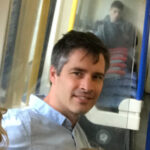
Jonathan Eacott
History
Second Book Fellowship
Elephantasmagoria: Elephants in British and American Imperialism
This project explores elephant representations and lives between 1550 and 1914 to argue that British and American conceptions of racial, national, imperial, scientific, and environmental supremacy were deeply entangled through South Asia and Africa, both before and long after the American Revolution. Elephantasmagoria works from forgotten stories that were often highly popular in the past, such as the Mughal Emperor showing disdain for King James I by not offering him an elephant, widespread associations of elephants with abolitionism and westward expansion in the United States, notorious Anglo-American imperialists advocating for species protection in Africa, and an American woman representing the British queen parading on an elephant in India. My method builds on my ongoing research on the global British Elephantasmagoria speaks to several issues of current public concern, including America’s position in trans-national systems of racial inequality and injustice as well as habitat and species loss and the ethical treatment of animals. Indeed, Elephantasmagoria reveals how these latter topics, often considered separately from imperialism, were fundamentally shaped by the British empire and long-standing American fantasies of partnership in a white Anglo-Saxon global order.
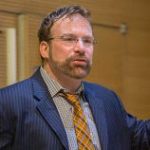
Jason Weems
History of Art
Second Book Fellowship
Inventing the Americas: Art, Archaeology, and the Modern Making of a Pre-Columbian Past
My project examines the roles played by Pre-Columbian Indigenous archaeological sites and objects, and their representations, in the visualization of new forms of modern cultural identity in the Americas. Since their so called discovery by European explorers in the early moments of colonization, the large scale ruins, environments, and structures of the hemisphere’s pre-contact cultures have served as sources of fascination in to Western colonizers. Between the 1840s and 1960s these sites emerged as important symbols in a variety of Western efforts to unify the hemisphere’s geography, ideology, history, and image. At the same time and with at least equal force, the monuments became touchstones in counter discourses of Indigenous self-determination, sovereignty, and survivance. Indigenous peoples across the hemisphere reclaimed the sites and their representations both as rightful property and as potent symbols in their quest for cultural and political authority. Resistance to the visual and material appropriations enacted by Western artists and archaeologists became a means for the colonized to assert power and affirming their Indigenous culture. In this way, Pre-Columbian sites and their images became loci for more contemporary battles over power and representation. My research offers the first in-depth, multi-perspectival study of the intersection between artistic and archaeological representation, and their attendant cultural politics, in the Americas during these pivotal years.

Dana Simmons
History
Mellon Term Professorship
Hunger Stories from the Science Archive
–
Hunger Stories from the Science Archive will study debates about the nature of hunger in the twentieth-century United States. With this research project, I will explain how people with food insecurity or obesity came to see themselves as maladapted, as lacking in self-control and self-discipline, or as destined to suffer because of an unfortunate genetic or economic heritage. I will show how and why hunger emerged as a political and scientific problem, at the very moment when consumer goods became available at a scale never before seen. The book-length project will explore a history of how hunger came to define the self in the late twentieth century. It will tell a story of how hunger came to stand in for many human qualities and motivations, particularly the drive to work. I will show that hunger is an important category in twentieth-century social and political thought, and that this category has been shaped by the sciences of psychology, anthropology, neuroscience, animal behavior, genetics and surrounding fields of study. These diverse sciences developed theories of the causes and effects of hunger, theories that spoke to questions like, Why do some people thrive in a modern capitalist consumer society, while others become sick, addicted or obese? I suggest that we need to understand the history of hunger, in order to address the global hunger crisis today.
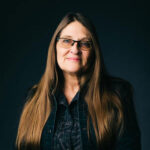
Allison Hedge-Coke
Creative Writing
Mellon Dean’s Professorship
Dust Upon Us
A Louisiana nation has already been relocated as a direct result of inaction in climate change. Eight islands are already gone in the Pacific and many more are expected to follow. Micronesian people are being relocated to Hawaii and to Arkansas. Drought and fire upend critically damaged habitats. The migration of many people, worldwide, is anticipated as inaction continues. Historically speaking, though the clearing of cross-timbers and maligned farming techniques, coupled with complete lack of Traditional Ecological Knowledge of regional wind currents resulting in massive climate change was caused by settler colonists in the late 19th century and in the 1930s, everyone in the region suffered and that suffering spread across the continent and all the way to Saskatchewan north and delivered droves of refugees into California whereas ramifications continue. I am devoted to a feature-length project, exploring climate change experience through first-person histories. Over the next year, I will work to bring voice to people not unlike the originally unidentified famous faces as depicted in the Lange photos of the Dust Bowl, to fill in the unstated gaps, while working to enlighten audience with some surprising cultural resiliency employed during this historic time, perhaps essential to our own understanding of working within stark reality faced in the climate change upon us in this era
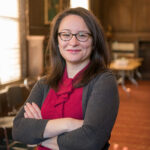
Kim Dionne
Political Science
Mellon Dean’s Professorship
Pandemic Politics in Africa
Abstract: Pandemic Politics in Africa is a book project in which I will analyze pandemics and the politics of pandemic response. Two consistent themes I found in my earlier work examining HIV, Ebola, and other pandemics were identity and trust. The fear associated with emerging diseases can lead people — including and especially government officials and political elites — to understand and frame pandemics as a threat posed by “others”. I compare recent pandemics to those in the past to show the long history of othering and blame during disease outbreaks and the consequences, including border closures and strict — if unequally distributed — quarantines. In understanding global, national, and individual responses to pandemics in Africa, I highlight the importance of trust in society, government, and the broader global community in shaping how people understand pandemics and how they behave as they navigatie pandemics.
2021-22

Philipp Lehmann
History
Mellon Second Project Fellowship
Data Migration: Global Climates Between Africa and Europe
“Data Migration” traces the emergence of a global environmental and climatological outlook through the often-forgotten work of both data gatherers in colonial Africa and data compilers in Europe around the turn of the twentieth century. The project attempts to uncover the scientific contributions of both African and European lay observers, who recorded and relayed climatological data from African colonies to the metropole. In Europe, clearing houses like the Deutsche Seewarte (the German Marine Observatory) in Hamburg assembled, sorted, and prepared the incoming data for publication. “Data Migration” will pay particular attention to the methods and ways in which individuals and institutions transformed the often place-specific and sometimes even qualitative information from the colonies into streamlined and quantitative data, portrayed in neat tables and smooth world maps. This process of standardization, the project argues, tended to obscure the local specificities of climatological conditions and their circumstances of recording, but also contributed to a nascent vision of an interconnected planet, characterized by a singular world or global climate.

Jennifer Syvertsen
Anthropology
Mellon Second Project Fellowship
Imaginative counter-geographies of the opioid crisis in the Inland Empire
Across the United States, the opioid crisis has received significant attention as drug overdose has become the leading cause of injury-related death, with nearly 70% of cases involving an opioid. Opioid overdose deaths have largely been cast as a medical problem in white communities warranting compassion. However, scholars have noted how these constructions reinforce racialized hierarchies of who is “deserving” of care while minimizing the importance of sociopolitical conditions in perpetuating drug-related harms in communities of color. In the Inland Empire (IE), overdose has escalated in recent years and intensified during the coronavirus pandemic, with deaths increasingly affecting historically marginalized communities to little public acknowledgement. This project inverts Edward Said’s concept of imaginative geographies, or representations of people and places that articulate fears, stereotypes, and judgments about less desirable “Others,” to propose an alternative: an imaginative counter- geography of the opioid crisis in the IE. The project envisions counter-geographies as narratives of resistance to dominant representations of the IE that reify health inequities and miscast opioid overdose as an individual fault rather than sociopolitical condition. Specifically, this project centers the neglected perspectives of people who use drugs and harm reductionists who implement strategies to reduce the negative consequences of drug use as a social justice alternative to punitive drug policies. Through observant participation in community-based outreach and ethnographic methods, this project will collaboratively map an imaginative counter-geography to disrupt dominant ideologies that legitimize some lives but not others.

Deborah Wong
Music
Mellon Term Professorship
Rogue Methodologies: Ethnomusicology, Woman, Other
What does it take for a discipline to upend its foundational histories? This project proposes an alternative history of ethnomusicology that addresses the deep impact of White liberal humanism on ethnomusicology by exploring methods beyond ethnography. Wong, an ethnomusicologist and a US feminist of color, will focus on the progressive politics of ethnomusicology by deploying critical methods that force new assumptions about location and positionality. The book project will leverage methods deployed by humanistic scholars in critical race studies, including witnessing, rereading, erotics, intercultural encounter, and subjectivity in a range of materials – audio recordings of police brutality, Disney empowerment ballads for girls, a Black woman musicologist, and late 19th-c. White sopranos performing transcriptions of ‘Indian songs’.

Susan Zieger
English
Mellon Term Professorship
Logistical Life
The history of logistics is said to begin in the 1960s with the shipping container. But contemporary logistics, which moves goods, people, and information from point to point efficiently to maximize profit, has a history as old as capitalism itself. And, because corporate growth is the horizon of its every operation, the logistical mindset imbues quotidian life with a transactional, competitive, and security-minded disposition that erodes alternative ways of being in the world. This book project, Logistical Life, blends literary, cultural studies, Black studies and visual studies with the history of science, technology, and economics, to tell a new story about the long rise of logistics, from the eighteenth century to the twenty-first. Even before the pandemic, logistics and its iconic form, the supply chain, had changed everyday life, as at-home delivery, cheap travel, on-demand digital services, and instant global communication became ordinary expectations. The term itself saturated our consciousnesses: “It’s logistics,” we’d say, when organizing domestic projects, family gatherings, and other mundane business. The corporate bywords of logistics, “agility,” “leanness,” “resilience,” and “flow,” became ideals of personal development and individual economic security in uncertain times. The pandemic has heightened the critical stakes of logistics, as current delays in vaccine rollouts and racial and class inequity in “essential” logistical work reshape our cultural discourses in ways unstudied by management, economics, and sociology scholars. Logistical Life offers a comprehensive critical reading of logistics’ tightened grip on everyday life in globalized culture.

Wesley Leonard
Ethnic Studies
Mellon Dean’s Professorship
Toward a Native American Linguistics
Despite an increasing focus within the discipline of Linguistics on Native American language community needs and values, as well as a broader shift toward social justice-oriented research, an ongoing challenge experienced by Native American scholars and community members occurs when disciplinary norms privilege colonial assumptions and categories. For example, linguistic analysis often isolates, fragments, and/or dissects language in ways that can alienate Native Americans (and others) for whom language is not a structural object that can be separated from culture or peoplehood. Meanwhile, despite its significant focus on Native American and other Indigenous languages, the discipline of Linguistics has very few Indigenous scholars. I propose that a key intervention for this problem lies in reimagining the discipline and proposing new models that are anchored in Indigenous modes of relationality, and that privilege Native American community views of what “language” is. This project builds upon my earlier work in developing “Native American Linguistics” as a framework of doing and teaching linguistics in a way that starts from Native American needs, protocols, and intellectual traditions.
2020-21
Crystal Baik
Gender and Sexuality Studies
Mellon Second Project Fellowship
Reparative Horizons: On Korean American Activisms
Reparative Horizons: On Korean American Activisms is an interdisciplinary study of activisms as remembered and practiced by multigenerational Korean American activists between 1970 and the present. Written in a multi-genre format that combines academic prose with creative non-fiction, Reparative Horizons centers 32 oral histories conducted with Korean American feminist, queer, trans and gender nonconforming activists. Mobilizing the reparative as a primary concept— or the transformative processes through which activists reckon with interpersonal and structural violence by repairing and regenerating beyond survival— this project pieces together the critical contributions made by Korean Americans to antiracist feminist movements in the United States. Currently, no monograph in Ethnic Studies,American Studies, or Gender and Sexuality Studies examines the hard-fought lessons and quotidian theorizations of Korean American activists. I aim to remedy this gap by foregrounding how a feminist study of Korean American activisms opens up new intellectual terrain in Asian American studies and women of color feminist scholarship in at least two ways. First, existing Asian American scholarship silos Korean American activisms to ethnic-specific issues, or defines Korean American activism as a derivative of South Korea’s democracy movement. Reparative Horizons departs from these trajectories by situating Korean American activists at the heart of four leftist movement histories: the anti-domestic violence, demilitarization, immigrant justice, and disability justice movements. Second, Reparative Horizons builds on existing studies of activism within women of color feminist scholarship, which broadly conceives of healing as reparative practices of health and wellbeing that exist relationally to, or outside of, activist labor. In contrast, I reconceptualize the reparative as a structural theorization of activism itself, examining the multitude of ways through which Korean Americans foreground multi-scalar repair—a working process that sutures the interpersonal to the systemic—as the central principle of their activist labor.
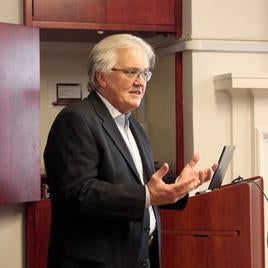
Thomas Cogswell
History
Mellon Term Professorship
The Murder of the Duke of Buckingham and the Transformation of English Political Culture
This study uses Buckingham’s assassination to explore the motivation for political violence. This 1628 episode might now seem irrelevant. But while some details involved with early modern and modern terrorist events are different, the general pattern is the same. After someone in straitened circumstances is exposed to radical ideas, they decide to martyr themselves. The rich material on the assassin allows us to follow his radicalization. Some motives centered on his fraught military career, and other on Buckingham’s efforts to recast the Church of England. But above else, Felton lived practically at ground zero of the burgeoning news culture. His scrivener produced seditious manuscripts, and the assistants introduce Felton to the Windmill, a notorious radical center. Felton later blamed his radicalization on these sensational items. The results are important both for English and European history. Political culture was then rapidly shifting away from the aristocrats towards more popular involvement. While others have ascribed the turmoil to aristocratic infighting, I will emphasize this political shift, driven the new robust news culture. Further, notwithstanding periodic English ambivalence about the continent, it becomes clear from a broader perspective that the radical turmoil that had engulfed France and the Netherlands and prompted the assassinations of William of Orange, Henri III and Henri IV had reached England in 1628, setting the stage for actual revolutions in all three countries in the 1640s. This book underscores the importance of setting English events in a continental context.
Gloria Kim
Media & Cultural Studies
UC President’s Faculty Research Fellowship
The Microbial Resolve: Visualization, Speculation, Security
The Microbial Resolve maps a crucial period (1989- 2015) in which microbial life was being reconceptualized and materially reworked. It begins with a neglected moment in microbial history – the invention of the “emerging microbes” concept by US government scientists after the cold war. I show how this concept, in its framing of microbes as “emergent,” oriented attention away from a concern over existing microbes, and towards the risks of their mutant, everywhere, always-potential (but not probable) futures. This book is an interdisciplinary and syncretic study of the USled project to plumb, in order to secure, the ungraspable futures of emergent microbes throughout the planet. I track how this militarized US-led effort became a vast planetary formation, spanning states, institutions, ecologies, systems, and resources.The history of the emerging microbe hinges on a problematic of its materialization: How did microbes existing only in a state of pure potentiality become material substrate for planetary remaking? I develop the concept of “microbial resolution” to name the set of discursive processes and visualization practices through which emerging microbes were materialized as securable matter in the world. I examine how the process of microbial resolution harnessed media forms, imaging techniques, and material and virtual networks to manage the biosphere in an effort to secure wealthy nations (above all, the US) from pandemic possibilities. I trace the earthly afterlives of this history (eg., the rise of mutant antibiotic resistant superviruses) to bring the period between 1989-2015 into view as an important, overlooked moment in the recent history of the Anthropocene. The Microbial Resolve will be the first full-length study to historically situate the discourse of emerging microbes at the intersection of science and technology studies, environmental humanities, media studies and visual culture.
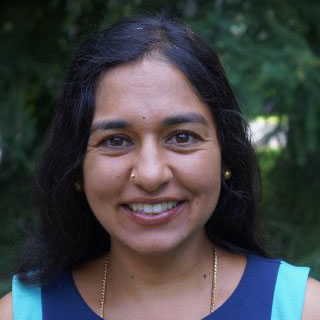
Padma Rangarajan
English
Mellon Second Project Fellowship
Thug Life: The British Empire and the Birth of Terrorism
Thug Life argues for a more global consideration of terrorism’s origins. While the explosion of the Victorian anarchist’s bomb was long regarded as the inaugural event of modern terrorism, recently scholars have turned their focus away from technology to ideology, particularly the concepts of popular sovereignty and nationalism emergent in the eighteenth century. Thug Life posits, however, that terrorism—or, more precisely, the discourse over what constitutes illegitimate political violence—cannot be properly understood without acknowledging the nation-state’s historical correlative, modern imperialism. The colony was one of the crucial spaces where the line between civil society and a state of emergency was legally and culturally judged. My project addresses an array of responses to repressive state-violence and counter- violence in Britain’s internal and external empires— Thomas Moore’s orientalist parsing of Irish insurrectionist rhetoric; Edmund Burke’s intertwined inveighings against Jacobinism and colonial cronyism; Bal Gangadhar Tilak’s advocacy of violent anticolonial protest and Aryan polar fantasies—while considering how literature negotiated the tenuous line between the colony as legal exception and the colony as a potentially recouperable site to be someday incorporated into modern civil society.
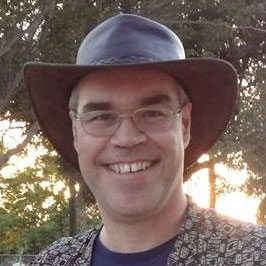
Eric Schwitzgebel
Philosophy
Mellon Dean’s Professorship
Philosophy Meets Science Fiction
–
Speculative philosophy and science fiction explore a range of overlapping issues such as personal identity, the nature of utopia, the nature of consciousness, and the ethics of future technology. However, at present, there is little interdisciplinary interaction between science fiction and philosophy. By co-editing two anthologies, including in substantive introductions, I aim to help build bridges between the two disciplines, highlighting the value of science fiction in exploring such issues in a way that more fully engages our imagination and emotions than does the typical expository work of philosophy. I will also synthesize into a coherent monograph several years’ work in the metaphysics and epistemology of mind, spread across eight published articles. The unifying idea is that science fictional scenarios permit us to envision bizarre minds and strange possibilities which, when we think through them properly, ought to challenge our commonsense conceptions of how our minds work and how much we know about the world.
–

Sherryl Vint
English
Mellon Term Professorship
The Ethics of Debt: Speculation, Imaginaries, Futures
It is crucial to understand the history of intensified indebtedness within wealthy nations to fully comprehend how the ongoing economic crisis is also one of democratic governance. As many scholars have noted, indebtedness has become a common means through which households sustain themselves, as states increasingly retreat from welfare state policies under the influence of neoliberalism. Given the centrality of debt to public life and daily practice, it is necessary to theorize how it functions as an ethos and an ethic. Western civic and political life has been entirely rewritten in aspeculative mode given the influence of structures of debt that capture flows of repayment and package them into tradeable assets. Yet if it is clear why capital wants to rewrite the social contract, it is less clear why the obligation to repay one’s debts persists as a moral axiom in a world where consequences of endemic indebtedness are patently visible. Debt is a pervasive and powerful metaphor for our religious convictions, our social bonds, our futurity, and our sense of justice. By cultivating values, beliefs and patterns of daily living—from the deferral of gratification to the cult of individual liberty to the celebration of risk—the culture we produce and consume teaches us how to be economic social subjects in ways that either smooth the path for continued financialization or introduce friction into its subsumption of social life. My project analyzes recent popular culture within this framework of critique, seeking to understand (1) how some texts have normalized debts cultures as the “natural” order of things, (2) how the aesthetics of recent texts distinctly mark the new phase of financialized capital, and (3) which representations critique and resist this economy hegemony and how they contribute to ongoing struggles for necessarily entwined social and economic justice.
2019-20
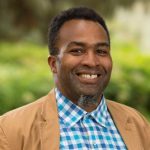
Jody Benjamin
History
NEH Fellowship
The Texture of Change: Cloth, Commerce and History in Western Africa, 1700-1850
–
My book examines the roles of West African laborers and elites in shaping an emerging global capitalism through the lens of textile commerce, consumption and dress. Throughout a broad region from Senegal to Sierra Leone, I show how people deployed textiles and dress to claim individual or group status in pluralistic societies experiencing revolutionary change. By following consumption of primary textile goods, rather than trajectories of violence and enslavement, historians gain fresh perspectives of the African experience before the late nineteenth century. Far from being driven solely by external demands for labor or raw commodities, this process was heavily influenced by local conditions and patterns of social relations. Western Africans were critical actors during this period of global integration through commerce, pursuing varied strategies of individual and group reinvention through mediation and incorporation of difference — contributing in their own right to the birth of the modern era.
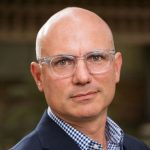
David Biggs
History
Mellon Term Professorship
Pacific Gyres and the Base Archipelago: An Environmental History of Militarized Circulations in the Pacific, 1945-Present
Over the next year, I will conduct a study of base-periphery shorelines in the Pacific (California, Guam, and Vietnam then continuing to sites in the Philippines, Okinawa, Hawai’i, and several atolls) with historical attention focused on the people—scientists, troops, families, refugees, laborers—and non-human life forms that circulated between them. This site-based focus will allow me to take advantage of rich troves of U.S. military records that not only document military actions but also “misfit” stories of protest, weedy invasives, and hybrid communities through texts, photography and maps, detailing what Espiritu (2017) terms the “military colonization” of the Pacific.

Marissa Brookes
Political Science
Second Project Fellowship
Bringing Labor Back In: How Histories of Conflict Tame Corporate Power Over Time
–
Whether private governance is viable, let alone sustainable, is a question that has attracted great interest in recent years. To date, however, the literature on labor and private governance has focused on single-issue corporate campaigns, country-level agreements, and global framework agreements, leaving aside questions of campaigns’ and agreements’ contributions to private governance over the long run. My project thus examines labor transnationalism’s long-term impact on employment relations through an analysis of national and global unions’ evolving relationships with TNCs to hypothesize that the private governance arrangements that most effectively protect workers’ rights are those that emerge out of many years of active conflict, in contrast to top-down agreements drawn up without a historical context of struggle.

Matthew King
Religious Studies
Second Project Fellowship
Faxian and the Invention of Asia
–
The Record of Buddhistic Kingdoms, an autobiographical adventure tale authored by one of pre-modern Asia’s most ambitious travelers—a turn of the 5th century CE Chinese Buddhist monk named Faxian—is one of the earliest and most detailed accounts of Central and South Asia’s pre-Islamic Buddhist societies and one of the few surviving accounts of life along the Silk Road. Adopting an inter-Asian frame aimed at historicizing, and thus displacing Europe as the source of modernity in Asia, this project analyzes the translations of the The Record over time to show how Orientalist scholarship was re-purposed at the frontiers of the Western episteme, setting the ragged edges of empire, nationalist movement, socialist experiments, and the bloody displacement of refugee communities into radical different times and horizons of expectation.

Jade Sasser
Gender & Sexuality Studies
Mellon Dean’s Professorship
Many Cooks in the Kitchen: Stoves, Fuels, and Women’s Agency in the Global South
My second research project takes up questions of gendered health, environment, and technology through a focus on women’s everyday household energy use in the global South. In this project, I explore international development narratives and projects focused on distributing “improved” cookstoves to impoverished women, interventions that rest on a framework that identifies solid fuel use and traditional stoves as health and energy-related problems of the rural poor, specifically women, and that purports to alleviate the problems of gender inequality, rural poverty, and sustainable energy use through a technological solution: fuel efficient stoves.

Stephen Sohn
English
Mellon Term Professorship
War Everlasting: The Militarized Technogeometries of Korean American Literature
With this fellowship, I will complete my monograph, War Everlasting: The Militarized Technogeometries of Korean American Literature, which will be the first of its kind to showcase how Korean American literatures repurpose the technologies and vocabularies associated with war in order to imagine less violent outcomes, on the one hand, and to combat the erasures of the defenseless and the expendable, on the other. This language of warfare—or as I call it, militarized technogeometries—is deeply embedded in the writings penned by Korean Americans, conditioned by Korea’s longer history as a site of conquest and violence, and employed by these writers to reconsider who must be represented, and how survival can still be achieved (and imagined) despite the war machine’s drive to instrumentalize technology for the production of death.
2018-19
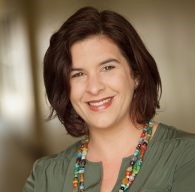
Amanda Lucia
Religious Studies
Second Project Fellowship
Transformational Festivals, Spirituality, and American Yoga
Historians and social scientists have dedicated generations studying the spiritual countercultures of the United States, from 19th century utopian communities, to the hippies of the 1960s, the new religious movements of the 1980s, the New Age movement of the 1990s, modern yoga, and contemporary transformational festivals in the United States. Erudite scholars like Catherine Albanese (2008) and Courtney Bender (2010), and before them Jon Butler (1990) have argued convincingly that metaphysical religion, an unchurched American spiritual counterculture, has been integral to the American religious landscape since the nation’s founding. However, although the majority of scholars acknowledge the fact that the spiritual counterculture is comprised of affluent whites, amazingly few have investigated why this is the case, repeatedly and pointedly, throughout American history. This demographic fact may have been less obvious in the 19th century, but today, when the contemporary United States has become highly diversified, the whiteness and wealth of the spiritual counterculture is glaring. It is clear that there is a ‘whites only’ sign hung somewhere at the entrance, but no one seems to know where or why.
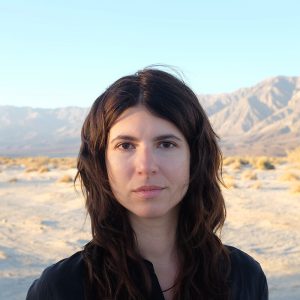
Andreja Novakovic
Philosophy
Second Project Fellowship
Experience in Hegel’s System
–
Although Hegel holds the view that “nothing is known that is not in experience,” this view rests on a radical reinterpretation of the concept of experience. As Hegel makes clear in the Phenomenology of Spirit, experience is always an experience of failure that disconfirms, rather than confirms, a given conception. My project investigates this sense of experience not just in his Phenomenology, which is meant to be a progressive story made up of failed conceptions, but also in his subsequent system. The monograph is divided into three parts. In the first part, I provide an account of experience in the Phenomenology as a vehicle of epistemic progress and explain its continued role in what Hegel calls “Absolute Knowing”. In the second part, I explore the conception of cognition in his Science of Logic and consider the place of experience from the metaphysical point of view. In the third part I turn to Hegel’s Philosophy of History and determine what it could mean to regard historical development as a “learning-process” in the way that Hegel suggests and in the way that Critical Theory continues to advocate.
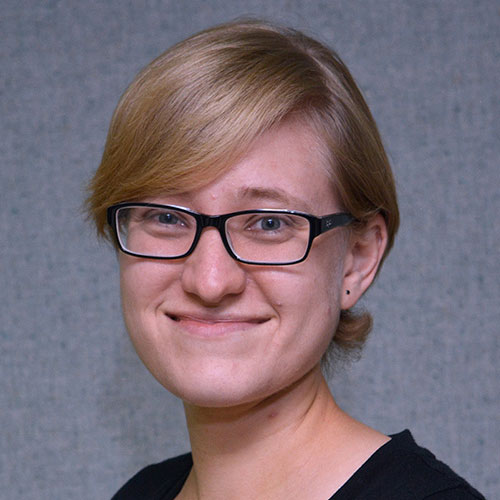
Christina Soto van der Plas
Hispanic Studies
Second Project Fellowship
New Chronicles of the Indies
–
The project explores how the traditional chronicles of the discovery and conquering of the Indies have been rewritten or reformulated with different purposes and in different literary forms. It is devoted to thinking the translation of historical, geographical, epistemological and generic forms. Chronicles can be thought of as the going back and forth that ties the logic of these movements in relation to the journey, travel or quest. This leads me to propose the notion of “traveling concepts.” The chronicles and this concept deal with the conception of a space as a text through which we build knowledge and our notions of culture that can only be understood in relation to something known. Thinking the chronicles of the Indies is thinking the laboratory of the conquest of the Americas and how worlds and epistemes have been created and/or repressed and crossed-out. The project seeks to question the ideas of the three terms I chose as a title: “new,” “chronicles,” and “Indies”.
2017

Farah Godrej
Political Science
Senior Fellowship (2017-20)
Prison Yoga and Meditation: South Asian Text and Practice in U.S.
How do prison contemplative programs of yoga and meditation fit into conversations around mass incarceration? Is their logic compatible with political strategies that seek to dismantle mass incarceration? Or do they instead work to reinforce more conservative logics that depoliticize mass incarceration and sustain the status quo? The yogic, meditative traditions of South Asia are sometimes said to produce pacifying and politically neutering effects: their emphases on acceptance, non-judgment, non-reaction and the focus on the individual self are thought to isolate both the causes and effects of structurally-determined political outcomes, rather than attempt to change systemic social injustice. As a result, critics suggest such programs may depoliticize mass incarceration and sustain the neoliberal status quo, managing the incarcerated without challenging the fundamental validity of mass incarceration, serving to make it palatable and emphasizing individual responsibility over structural injustice. The imperative to improve life for the incarcerated may distract from an unjust system made more habitable, and its victims more compliant, producing accommodationist and depoliticizing attitudes among both its target population as well as the general public. However, many scholars also insist that yogic/meditative teachings can also be interpreted to generate attention to oppression and social injustice, and resistance to the status quo. My project asks: Are these practices being taught in incarceration facilities in ways that pacify, depoliticize or reinforce compliance with the logic of mass incarceration? Or do they offer relief from suffering while also drawing attention to systematic injustice?

George Haggerty
English
Senior Fellowship (2017-20)
HORACE WALPOLE: A Life in Letters
–
Horace Walpole (1717-1797) was the youngest son of England’s first “Prime” Minister, Sir Robert Walpole (1676-1745). A writer and collector, he was also an originator of the craze for all things Gothic in the later eighteenth century. He is the author of two of the great Gothic works of the age, The Castle of Otranto (1764) and The Mysterious Mother (1768). His home, which he transformed into a miniature Gothic castle called Strawberry Hill, was a touchstone for eccentric taste and exuberant imagination. There is no significant literary figure of the eighteenth century as much in need of a biography than the gothic novelist and inveterate letter-writer, Horace Walpole. He was precocious, articulate, and keenly observant. His letters have often been plumbed by historians and literary scholars for details about eighteenth-century politics, art, or social life; but they are also an amazing source of information about the life of their author, and they can begin to tell us an intimate account of this fascinating eighteenth-century gentleman. In this biography, which although largely literary in emphasis will also address every feature of this varied life, I hope to offer readers a more lively and vibrant Horace Walpole than the figure who has appeared in other works.
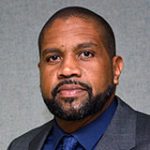
Anthony Jerry
Anthropology
Second Project Fellowship (2017-18)
The Racialization of Space and Youth Citizenship in the Southwest United States
This project will focus on the discourses of racialization that surround the U.S./Mexican border, and how these discourses effect youth conceptions and practices of citizenship and potential inter-racial, vis-a-vis African-American and Chicano/Latino, collaborations and coalitions within the U.S. Southwest. The project focuses on the availability and allocation of resources to various youth centered spaces and the potential for these resources to create a feeling of ‘owned’ space and belonging for youth. Through qualitative research methods this study will examine the ways in which youth centered spaces are positioned to help youth engage in the production of citizenship on both a personal and communal level. This project will explicitly explore how a discourse of the U.S./Mexican border as a Latino space can potentially reduce conversations surrounding border issues to a Brown/White dichotomy, and can neglect the rich cultural and political histories of the many communities that have historically made the region their home. The study lays the foundation for a larger research project focusing on immigrant and first generation adolescents’ citizenship practices and how this information can be used to understand future notions of citizenship.

Stephen Sohn
English
Senior Fellowship (2017-20)
Recalculating Combat: The Militarized Technogeometries of Korean American Literatures
With the support of this fellowship, I will be able to complete my monograph, Innovating Stalemate: The Militarized Technogeometries of Korean American Literature. My book will be the first of its kind to analyze how Korean American literatures repurpose the technologies and vocabularies associated with war in order to imagine less violent outcomes, on the one hand, and to combat the erasures of the defenseless and the expendable, on the other. This language of warfare—or as I call it, militarized technogeometries—is deeply embedded in the writings of Korean American writers. Thus, this kind of literary aesthetic is conditioned by Korea’s longer history as a site of conquest and violence. At the same time, these writers employ such the coded language of war to reconsider what must be given attention, who must be represented, and how survival can still be achieved (and imagined) despite the war machine’s drive to instrumentalize technology and innovation for the production of death. My proposed monograph will further elucidate the complexity of Korean American war representations, appealing to a broad range of humanities scholars, including: Asian American literary scholars; humanist scholars in History, English, Ethnic Studies, Media and Cultural Studies, and Comparative Literature; and the general public, especially in light of national discourses promoting a broader understanding of our cultural histories.

Rachel Wu
Psychology
Second Project Fellowship (2017-18)
Inducing cognitive growth in aging adults
–
There is an increasing aging population experiencing normal cognitive decline (in memory, attention, inhibition, etc), and current cognitive training programs (e.g., Luminosity) are not very effective, especially in the long term. Early childhood experiences offer cognitive training to healthy infants and children, but are often overlooked in aging research. My new theory (Wu at al., in press) argues that becoming an expert in specific domains during adulthood (as opposed to learning broadly during childhood) eventually leads to rigidity and cognitive decline. Therefore, the same broad learning experiences that promote child development may also benefit aging adults. To test our theory, we will implement a naturalistic intervention (from Winter 2017-Spring 2018) for older adults that will implement six factors from early childhood experiences: individualized scaffolding (having a responsive teacher), forgiving environment (allowing the learner to make and learn from mistakes), growth mindset (believing that abilities can develop with effort), open-minded learning (exploring new experiences), serious commitment to learning (adopting a learning lifestyle), and learning multiple skills simultaneously. These six factors will be implemented via concurrent classes at the UCR Extension center. As the intervention wraps up during Spring 2018 (the proposed quarter of CIS residency), I plan to achieve four goals: 1) analyze the extensive intervention dataset, 2) write ensuing manuscripts, 3) write a large NIH research grant application, including the collected data, and 4) write and submit an NSF workshop grant. We anticipate that implementing child development factors will provide aging learners with the most supportive environments for cognitive growth.
2016

Paulo Chagas
Music
Senior Fellowship (2016-19)
Sonic Imaginations: Sound Studies, Sound Practices and Sound Creativity
The proposal is focused on the emerging interdisciplinary field of sound studies that reaches into fields of sonic knowledge and practice that cuts across different disciplines, methods and objects including new forms of technologically mediated listening and new processes for manipulating, transforming and working with sound. It develops research in three different areas: (1) a theoretical investigation on the rich and growing scholarly literature of sound studies as an academic field in the humanities and socials sciences defined by combination of object and approach; (2) a comparative and practical study of the material production and consumption of sound, noise and silence in three specific sonic environments defined from a global perspective; (3) a sound and visual art-installation engaging the concepts and objects of the research in a critical reflection on the diversity of contemporary sound practices and creativity. The proposal aims also to develop a broad knowledge on sonic imaginations as an interdisciplinary meeting point of different disciplines and benefiting UCR departments and areas of study such as music, philosophy, media and cultural studies, technology studies, ethnomusicology and popular music studies, creative writing, anthropology and sociology. It also seeks to provide support to the cluster hire initiative “Global Arts” that is part of the Global Studies program and is recruiting a faculty on Global Sound Composition.

Christine Schwenkel
Anthropology
Senior Fellowship (2016-19)
The Afterlife of Solidarity: Vietnamese Reanimation of Urban ‘Ruins’ in Eastern Germany
On the eve of the fall of the Berlin Wall, more than 30 thousand Vietnamese citizens were working or studying in East Germany (GDR) as the result of “international solidarity” campaigns. Many of these migrants were forcibly returned home with the dissolution of the GDR; others sent for their families and remained, often illegally. Since German unification, Vietnamese migrants have had to contend with many challenges in their everyday life: unemployment, rising rents, and increasing xenophobic violence are just a few of the new uncertainties that have come to mark the urban experience. This project examines the role of these migrants in reversing the trend toward “shrinking cities” that occurred across eastern Germany after industrial areas experienced extraordinary population loss with the closure of major centers of industry. In recent years, there has been a reanimation of socialist housing complexes through the occupancy of abandoned (but still inhabitable) buildings by Vietnamese migrants. For Vietnamese migrants, new vacancies have meant new opportunities: both social and economic. This research asks: how have such occupancies in urban “ruins” transformed “dying” neighborhoods and injected them with new vitality to create more vibrant heterogeneous landscapes that have challenged dominant political discourses of “integration” that aim to turn potentially unruly migrants into industrious, adjusted citizen-residents? Adopting historical and ethnographic methods, this multi-sited project in Berlin and Halle Neustadt examines the ‘sympathetic solidarities’ that have formed in the struggle against urban alienation through an attention to the sociability of dwelling practices.

Ajay Verghese
Political Science
Second Project Fellowship (2016-17)
The Last Days of Magic: Religiosity in Modern India
–
The 20th century witnessed a marked decline in religiosity across the developed (or ‘postindustrial’) world. This outcome was squarely in line with secularization theory, the argument from prominent 19th century social scientists like Marx, Freud, and Weber who theorized that modernization (industrialization, urbanization, and increased education and wealth) leads to the decline of religion. As many non-Western governments embarked on the process of modernizing their states, however, religion – instead of declining – remained as vibrant as ever and often emerged as a powerful political force. Our knowledge of secularization is derived from the historical experiences of a handful of Western cases, but these states have proven a poor guide for countries in Africa and Asia with entirely different religions, cultures, and histories. This proposed study asks the central question: will the developing world secularize? Perhaps the most important benchmark for answering these questions today is India, one of the most religious and rapidly-modernizing countries in the world. This book project will involve surveying 3,600 households across three distinct Indian states to examine changing religiosity in modern India.

Jason Weems
History of Art
Senior Fellowship (2016-19)
Inventing the Americas: Art, Archaeology, and the Modern Making of a Pre-Columbian Past
This book-length project examines the central roles played by Pre-Columbian indigenous archaeological sites, and especially their representations, in the construction (or imagination) of a unified sense of cultural identity in the Americas. Since their so called “discovery” by European explorers in the early moments of colonization, the large scale ruins, environments, and structures of the hemisphere’s pre-contact cultures have served as sources of fascination in Western society. Between the 1870s and 1960s—a watermark period in Euro-American efforts to consolidate a modern, industrial definition of the Americas—the pre-contact sites emerged as important symbols in the effort to unify the hemisphere’s geography, ideology, history, and image. Equally important, the monuments also became touchstones in counter discourses of indigenous self-determination, sovereignty, and survivance. Indigenous peoples across the continents reclaimed the sites and their representations as material evidence in demands for land and political authority, and as potent metaphors for the articulation of cultural legacy and legitimacy. Resistance to the appropriation of the sites enacted by Western art and archaeology became a means for asserting power and affirming indigenous culture. In this way, the imagery of ancient sites the locus for contemporary battles of politics and representation. This project offers the first in-depth, hemispheric study of the intersection between artistic and archaeological representation, and its attendant cultural politics, in the Americas during these pivotal years.